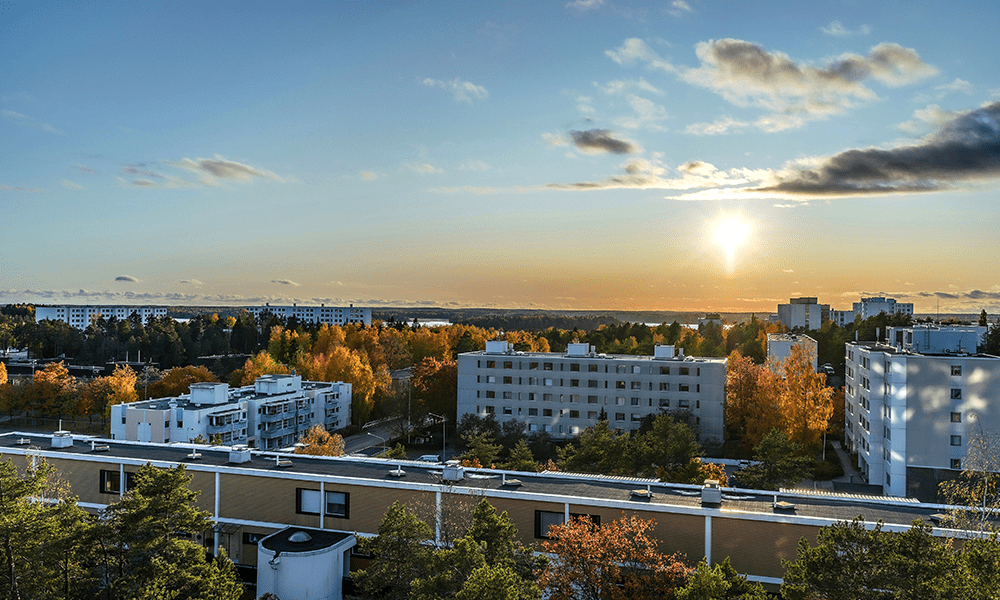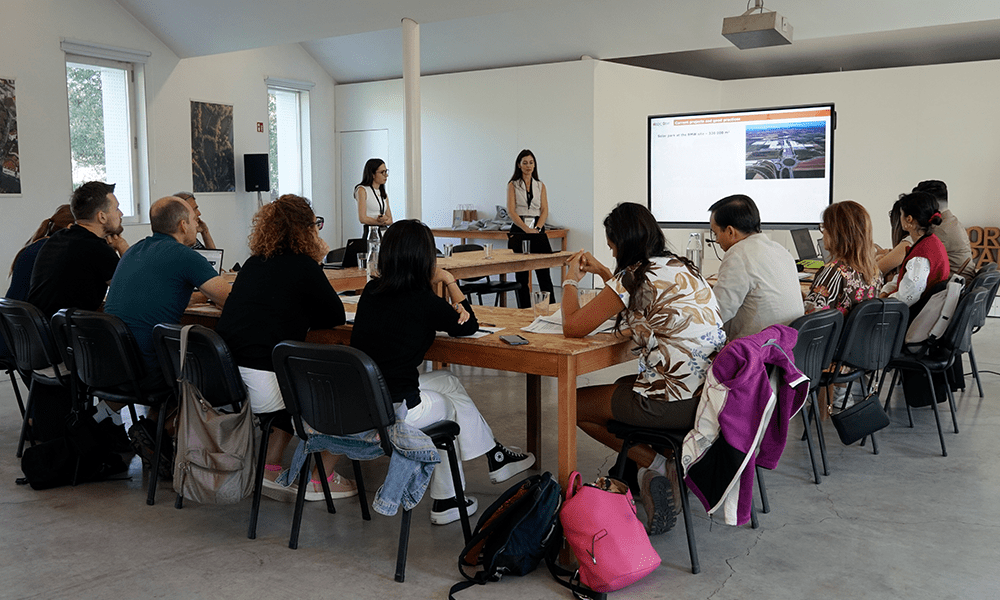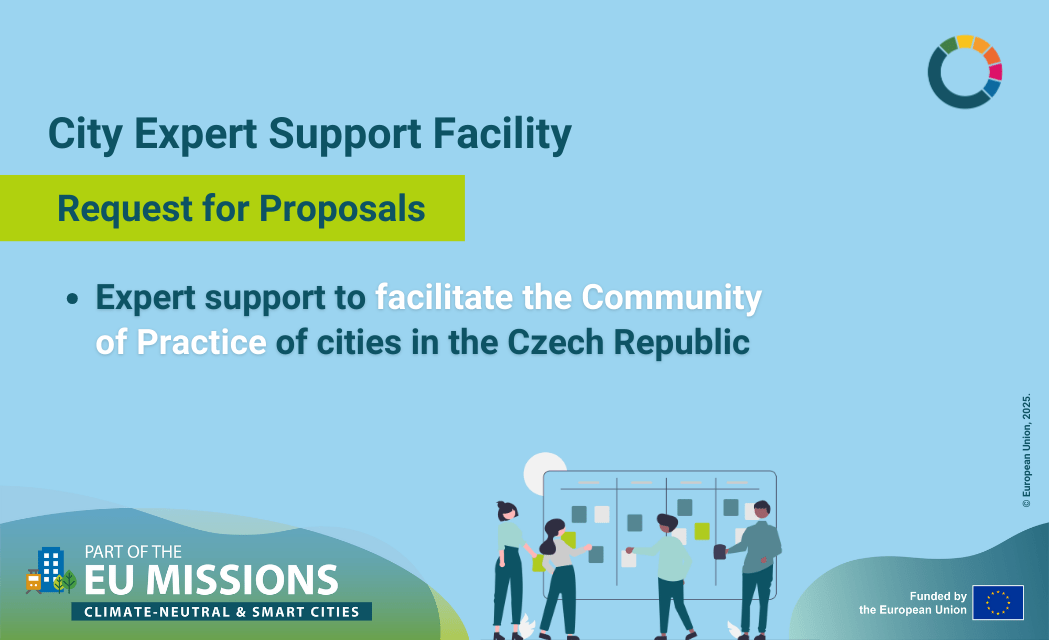Author: Barbara Jarkiewicz
Stories from Pilot Cities: Ioannina is one of the 112 cities participating in the EU Mission to deliver 100 climate-neutral and smart cities, and the Pilot Cities Programme – a component of the Mission that focuses on exploring and testing pathways to rapid decarbonisation over a two-year period.
Ioannina, a vibrant university town by a shimmering lake surrounded by mountains, may not fit the Greek postcard stereotype, and that’s exactly what makes it the perfect place to reimagine the future of their climate neutrality. Through their participation in the Pilot Cities Programme, Ioannina is turning ambition into action through a pioneering experiment: the creation of three Climate Neutral Zones where new ideas are tested in real–time.
It’s a far cry from the images most people associate with Greece, such as the Acropolis bathed in golden sunlight, island beaches, and the iconic blue sea. But Ioannina’s setting and quieter pace have positioned it at the forefront of a bold urban transformation, one rooted in both tradition and innovation.
That openness to innovative solutions builds on a deep-rooted local identity.
“It’s a multicultural place,” says Giorgos Antoniou, Project Coordinator for the city’s participation in the programme. “Historically, Jewish, Muslim, and Greek communities lived and worked side by side here. That openness is still part of our identity today. It’s a calm, welcoming city, inclusive by nature.”

Now, that inclusive spirit is being channelled into the city’s most ambitious transformation yet: becoming climate neutral by 2030. Through the Pilot Cities Programme, Ioannina is rethinking how the city operates, who takes part in shaping it, and what a just, green transition truly entails.
In 2019, the city’s emissions stood at 352,000 tonnes of CO₂ equivalent. The city has now committed to cutting that by 80% by 2030, an ambitious target that surpasses national goals and positions Ioannina as a frontrunner in Greece’s climate transition.
Three Zones, One Common Vision
To reach its ambitious targets, Ioannina is implementing an ambitious investment plan towards climate neutrality. The first step is the CRISP pilot project to establish the methodology for climate neutral zones, distinct areas within the city where deep, locally tailored interventions are tested and refined.
“We are running neighbourhood-scale experiments to move towards our net zero vision. The zoning approach aims to address small-scale challenges related to creating a sense of climate security for citizens and visitors,” – said Antoniou.
These zones are carefully chosen neighbourhoods with different characteristics, needs and potential, including:
- The urban waterfront city centre, a culturally rich but traffic-heavy, popular with residents and visitors,
- The island on the lake, with its own microclimate,
- And a semi-urban district near the University campus and a small urban forest, with ample public space but limited strategic planning to date.
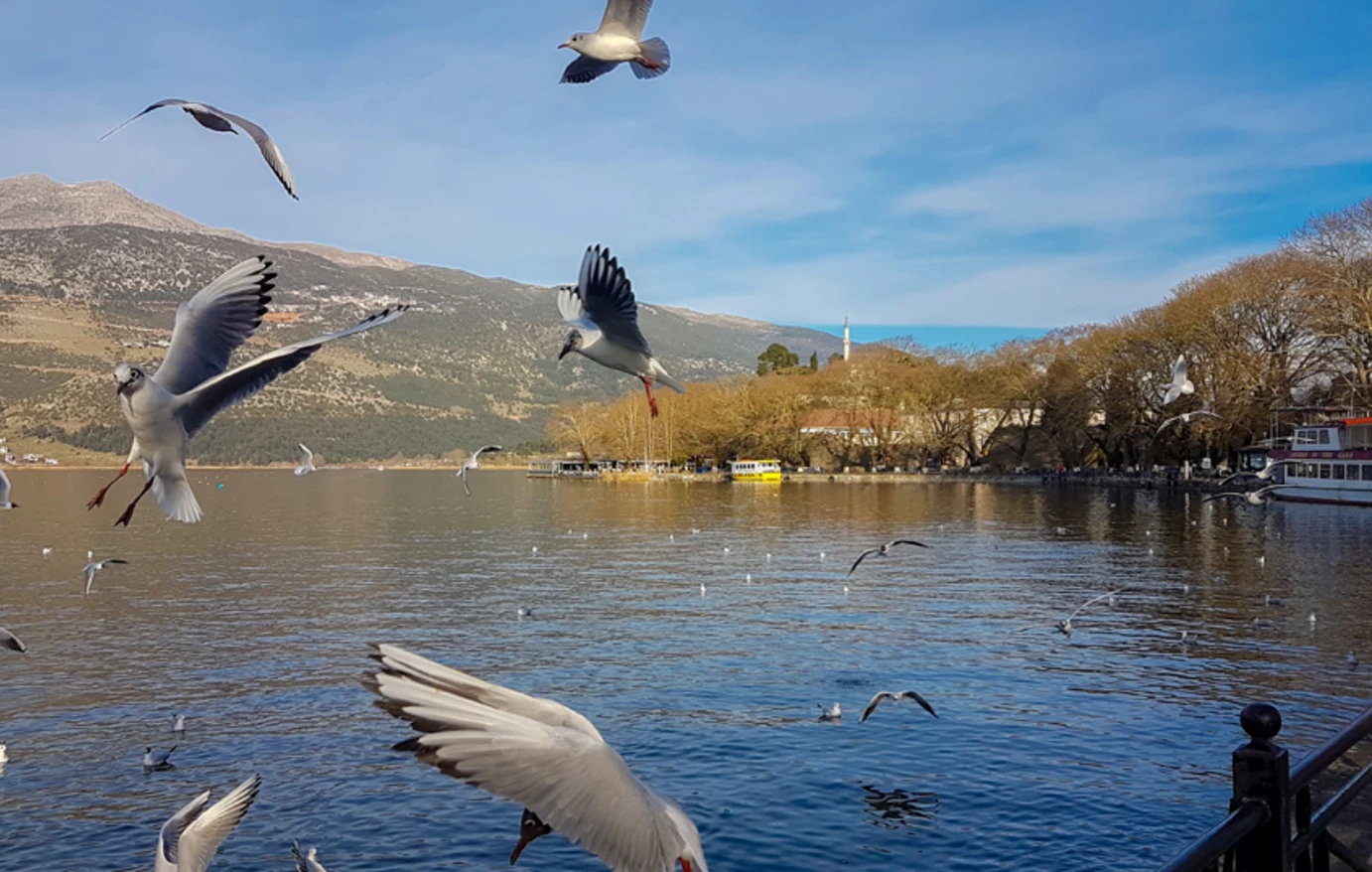
“These three areas are connected, but each one tells a different story. One is urban and scenic, another is natural but separated, the third is green but overlooked,” Antoniou explains. “The variety allows us to test very different approaches.”
The interventions planned in the zones cover various themes, including sustainable mobility, area renovation, nature-based solutions, social innovation, retrofitting, and urban planning, among others. The creation of climate– neutral zones is tightly embedded in Ioannina’s Climate City Contract, a vehicle for the city’s transformation, including investment and action plans.
“The first step in transforming these zones is to co-create a shared vision for each neighbourhood,” says Antoniou.
This process begins with mapping current land uses and environmental pressures to establish a clear baseline. From there, the city, supported by academic and technical partners, is working to identify and prioritise interventions, guided by local realities.
The project doesn’t just aim to deliver infrastructure; it seeks to deepen civic participation and expand the community’s capacity to engage.
“It’s about helping people feel ownership of the process,” Antoniou says. “That’s how you build long-term support.”
That ownership is already visible: the local Taxi Drivers Union has pledged to shift to electric vehicles, the police are helping monitor and enforce the emerging low-emission zones, and the National Confederation of Disabled People is lobbying for streets more accessible to pedestrians. These aren’t symbolic gestures. They’re part of a growing, cross-sector commitment to make the transition work for everyone.
Designing the Future with Citizens
But there is a bigger ambition that lies ahead. The gap between policy language and lived experience is something Ioannina is actively working to bridge.
“These projects give us a chance to establish a common vocabulary and a common vision. That’s the real goal.”
To achieve that, the city is inviting citizens into the planning process. Local stakeholders, from residents and business owners to academics and cultural organisations, each play a role in shaping what their climate-neutral neighbourhood will look like.
In each zone, a Climate and Energy Poverty Office will serve as a public-facing hub, providing information, receiving feedback, and linking people to support. These will be run in cooperation with a local social cooperative, ensuring close ties to the community and vulnerable groups.
“This is critical,” Antoniou says. “People need a human face in the process. If you want a real transition, it has to be accessible, and not just technologically, but socially.”
Reclaiming public space
One recent example of this citizen-centred approach was a weekend-long picnic event along the lakefront.
“We closed the road to traffic and filled it with life. Yoga, open-air cinema, street theatre, food stalls… and no cars. The response was incredible,” Antoniou says.
It was a vision exercise, a way to help residents imagine what the lakefront could be without the dominance of cars.
“You should have seen the photos. People were everywhere — walking, laughing, connecting. That’s when you realise how much potential we have.”
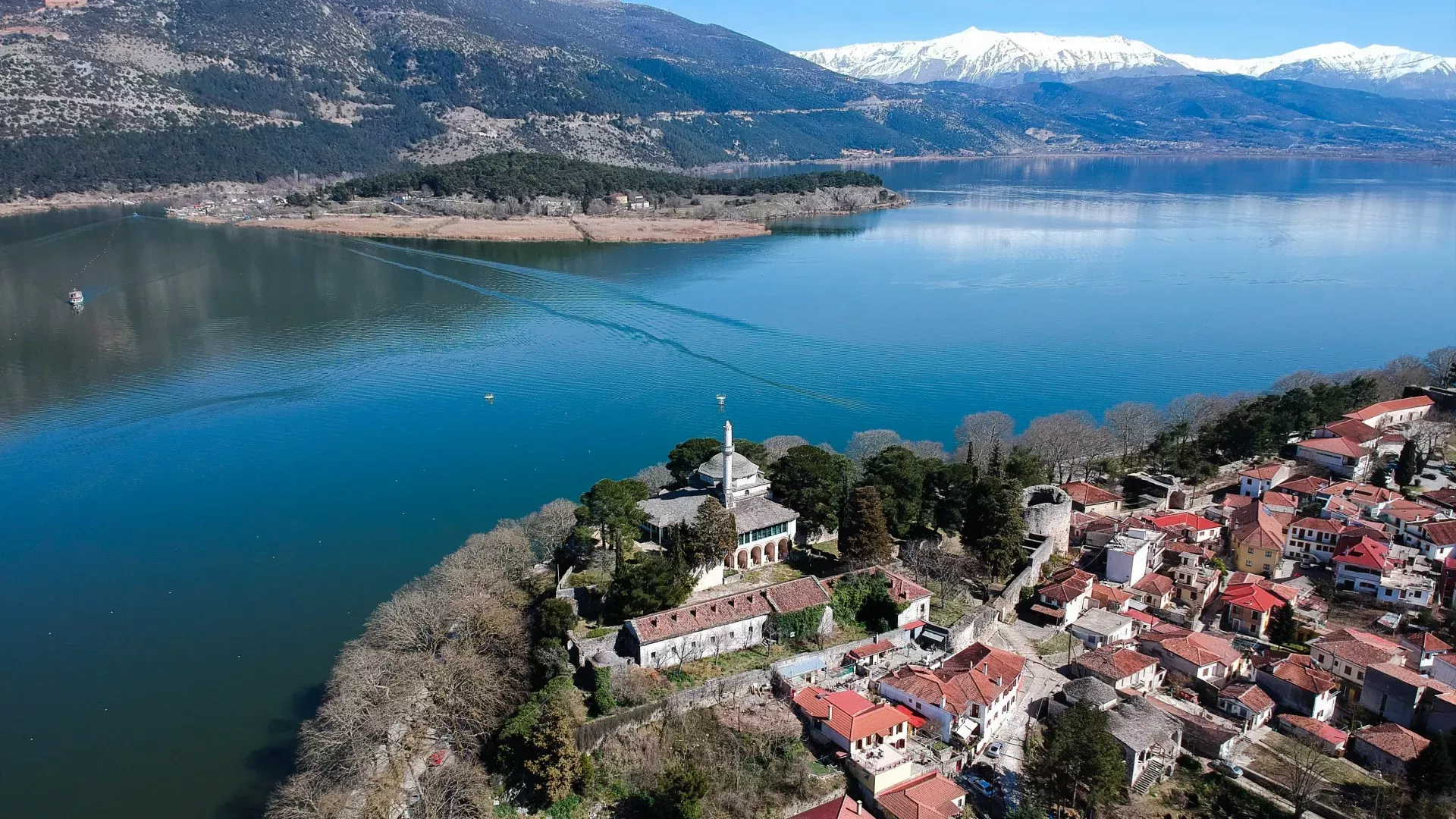
Mobility plays a central role in Ioannina’s climate plans, not only as an emissions issue, but as a design opportunity.
“Especially in the city centre, we need to experiment with car-free zones, low-speed areas, and mixed-use streets,” Antoniou explains. “It’s difficult from an infrastructure point of view, but it opens up so much public space for people. We can’t underestimate how transformative that can be.”
The lakefront picnic offered a taste of that transformation and gave the city a powerful reminder of what inclusive, low-carbon urban life can feel like.
Innovation Meets Tradition
Alongside experimenting with car-free zones and community events, Ioannina is also investing in virtual net metering, generating renewable energy outside the city and feeding it into public buildings and services.
“In the dense city centre, you can’t just plant wind turbines,” Antoniou notes. “So we’re working with what’s possible and legal in Greece.“
In parallel, a more data-driven transformation is underway. Ioannina is piloting a monitoring tool to track the progress of its Climate City Contract using emissions data and real-time climate indicators. The tool is being developed based on an existing national platform and could become a blueprint for other Greek cities.
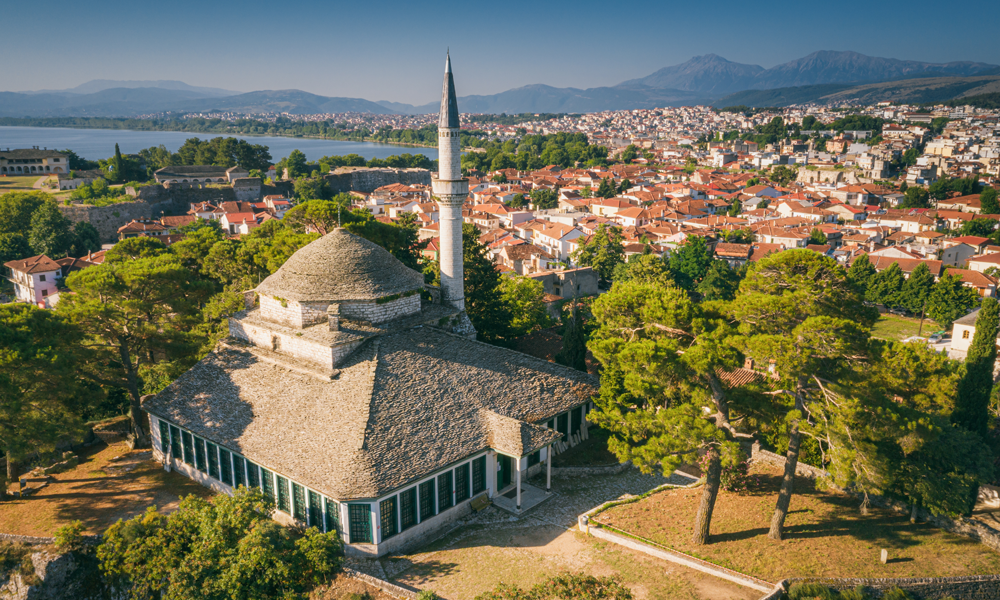
Learning, Sharing, and Scaling
The work isn’t happening in isolation. Ioannina is part of ClimaNet a new network of Greek and Cypriot cities aiming to pool experiences, advocate for shared needs, and jointly apply for funding.
“We’re establishing a council,” says Antoniou. “We’ll collect common challenges and bring them to the right authorities. Together, we’re stronger.”
That spirit of collective effort is also shaping how the city sees its role in the broader climate movement.
“This isn’t easy,” Antoniou says. “Cities know how to fix roads, plant trees. But this is systemic change. We need a lot of help, such as technical support, streamlined processes, better procurement pathways and more.”
What advice would Antoniou offer to other cities considering similar steps?
“It’s a demanding journey; it takes coordination, patience, and resilience. But it’s also deeply rewarding. If cities are ready to commit, the impact can be transformative.”
Ioannina may not have the name recognition or seaside allure of Greece’s tourist capitals, but its ambition is making waves far beyond its mountain borders. For them, climate neutrality is not just a technical goal. It’s a social project, a political challenge, and an opportunity to build a better city with its people. And as Giorgos Antoniou puts it, “We don’t feel alone. This mission isn’t just ours. It’s shared across cities, across borders, and across generations.”


